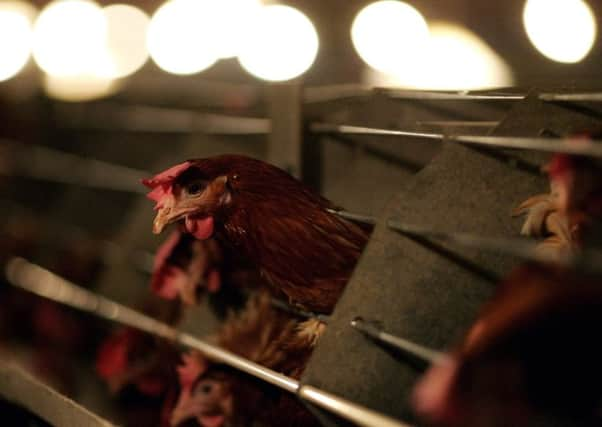Marco Gori: Our hunger for meat is killing the planet


The thought of chlorine-washed chicken on the plates of consumers, sparked debates and fears. Mainly because Americans say the practice is safe, whereas Europeans have been firmly rejecting it for years.
Americans disinfect chicken to kill potentially dangerous bacterias, without having to worry too much about the crowded conditions animals live in. Intensive farming is practiced in megafarms or factory farms.
Advertisement
Hide AdAdvertisement
Hide AdIn megafarms tens of thousands of animals lived packed often without the chance to ever see the sunlight. Some say that they ought to be banned because animals are kept in inhumane conditions, the use of antibiotics is intensive, and that they contribute to air and soil pollution.
Others say that megafarms are necessary, because traditional farming methods are unable to meet the market’s demands for meat in terms of quantity and costs.
For years, Europeans convinced themselves that intensive farming did not exist in Europe. We convinced ourselves that stories about the poor living conditions of the animals or about disease outbreaks affecting them were alien to us, and our farming methods. The cheap costs of animals products did not open our eyes. Instead we often complain that prices are not low enough.
However a recent probe by The Bureau of Investigative Journalism found there are almost 800 of these farms in the UK. In fact, according to the British organisation Compassion in World Farming, “Around 70 per cent of farm animals in the UK are kept in factory farms”, a percentage not far from American reality.
According to the Food and Agriculture Organization of the UN, livestock is responsible of 14.5 per cent of global greenhouse gas emissions. Furthermore farming is linked to deforestation. It is foreseeable that if the demands for resource-intensive products will continue, the planet won’t be able to sustain the world’s population.
Scientists and governments have expressed concerns especially regarding the consumption in emerging countries where meat consumption grew exponentially in the last 30 years. The Chinese government even launched a campaign aimed at reducing the quantity of meat consumed to reduce pollution.
While China’s move was well praised worldwide, I think it is time for the West to reconsider its dietary habits.
The majority of westerners have become accustomed to eating meat and dairy products at affordable prices every day. Worst of all, while we are enjoying our £4-a-kilo, deboned chicken breast, we are telling others that they cannot consume as much as we are doing because the planet will not cope.
Advertisement
Hide AdAdvertisement
Hide AdGiven that we have one planet, a change is needed, whether that be in the form of reducing our appetite for meat, ditching it completely from our diet, or switching to more sustainable alternatives.
Marco Gori is a student based in Glasgow.